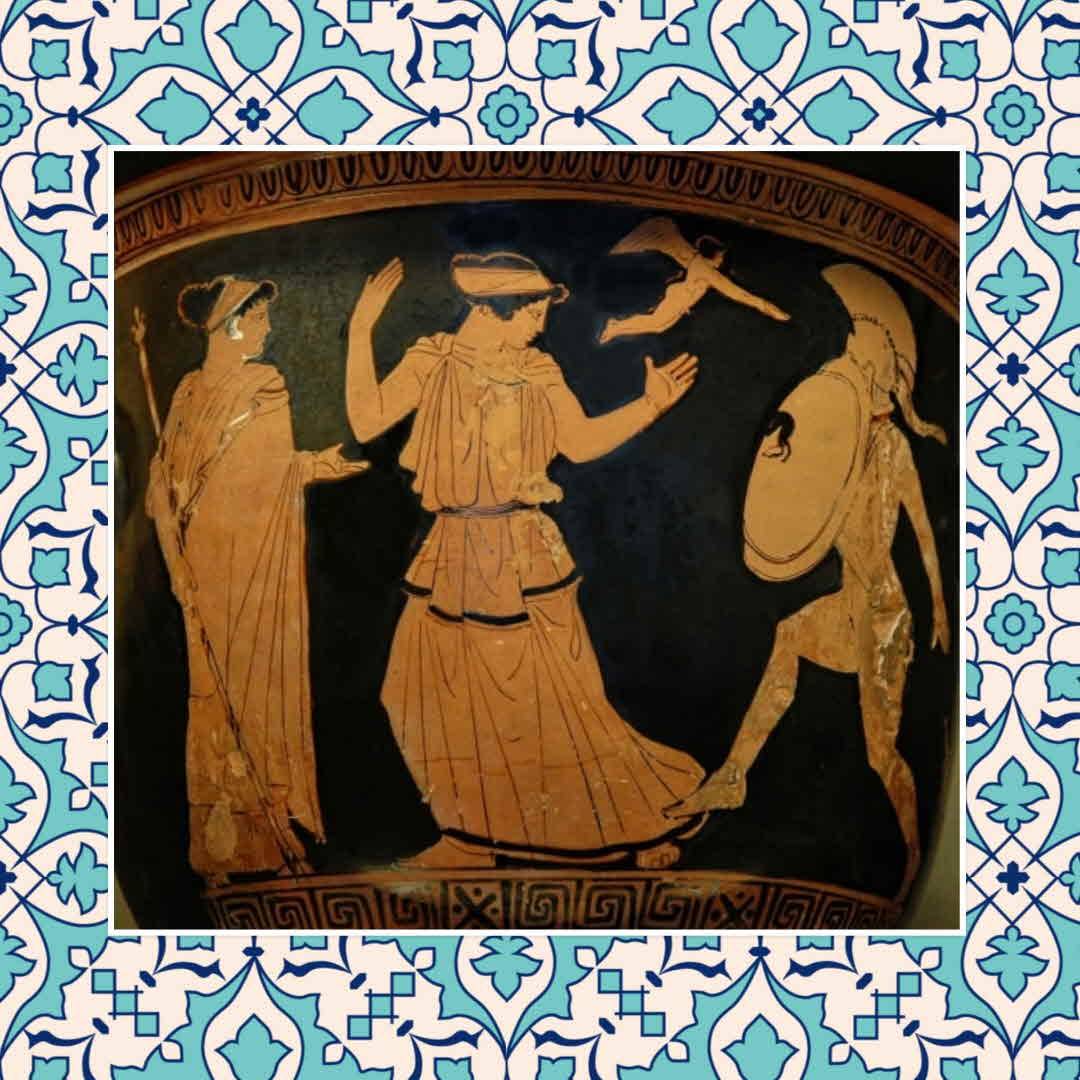
Euripides is the king of screwball tragicomedy, & that's a compliment. He is the one tragedian that reads like proto-Shakespeare. I like the screwball element. The twist here is that the Helen that drove foolish men to wars is a mirage, while the real Helen bides her time & reveals a sharp mind by degrees. Helen & Menelaus get to work like a sweeter, nonviolent Bonnie & Clyde, & then Euripides sends in the demi-gods to give us a "happy" ending.
batsy I read the translation by Richmond Lattimore. Image is from Greek pottery c. 450-440 BC showing Helen, centre, with Menelaus on the left. 3y


















